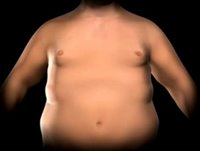Are you a candidate for gastric byoass surgery?

The option of surgery to treat obesity has gained in popularity over the past several years. As the techniques and knowledge regarding the subject have improved, so too have the results. However, not everyone is a candidate for surgery when it comes to their weight. Moreover, one must be sound psychologically as well as physically to undergo either of the two most common procedures, Rous-En-Y gastric bypass and adjustable gastric banding.
Generally speaking, one must have a body mass index (BMI) greater than 40 to be considered for surgery, or have a BMI greater than 35 with one or more obesity related co-morbidities such as diabetes, obstructive sleep apnea, hypertension or the metabolic syndrome. In addition, it is rare that a physician or other healthcare provider will move right to the surgical option without first exhausting all the non-surgical options. Usually, both the surgeon who will perform the procedure and the individual's insurance company will want to see that the patient has truly "failed" diets, exercise, and group programs such as Weight Watchers, Nutrisystem and others, before agreeing to go ahead with surgery.
Both Rous-En-Y gastric bypass procedure and adjustable gastric banding are very effective at helping people lose weight. One study, which looked at any type of weight loss surgery, showed maximal weight loss at 1-2 years with a 32% drop for the gastric bypass procedure and 20% with the gastric banding procedure. The loss at 10 years post surgery was more modest but rather significant nonetheless with gastric bypass at 25% and gastric banding at 14%.
If you are an individual with the above mentioned criteria for severe obesity (a.k.a morbid obesity), and you have indeed failed many attempts at sustained weight loss over a period of a few years, weight loss surgery may certainly be an option, and you are encouraged to speak with your primary care provider about the subject. Be cautious though.
Firstly, by its mere nature, obesity, especially with co-morbid conditions such as diabetes, hypertension and high cholesterol, will put you in a higher surgical risk category with potential for more complications. Your surgeon and primary care provider will most likely want you to undergo a battery of tests to ascertain your overall health and suitability for the procedure as well as assess your perioperative risk for complications.
Also, often overlooked, is the psychological trauma for patients, many of whom have been heavy their entire lives and are not fully prepared for the change they will experience after surgery. For instance, some patients have battled depression and anxiety having come to identify themselves as obese, but now are no longer. They can have difficulty adjusting their psyche to a new body image. Moreover, the individual's relationship with food can change dramatically, especially after gastric bypass surgery, an added trauma. Often, one cannot eat as much post surgery and patients can find that an unusual issue to deal with having not anticipated this before the surgery. In all likelihood, one will most likely be required to undergo a psychological evaluation in addition to the physical one.
Labels: bariatric surgery, gastric bypass surgery, proper candidate

0 Comments:
Post a Comment
<< Home